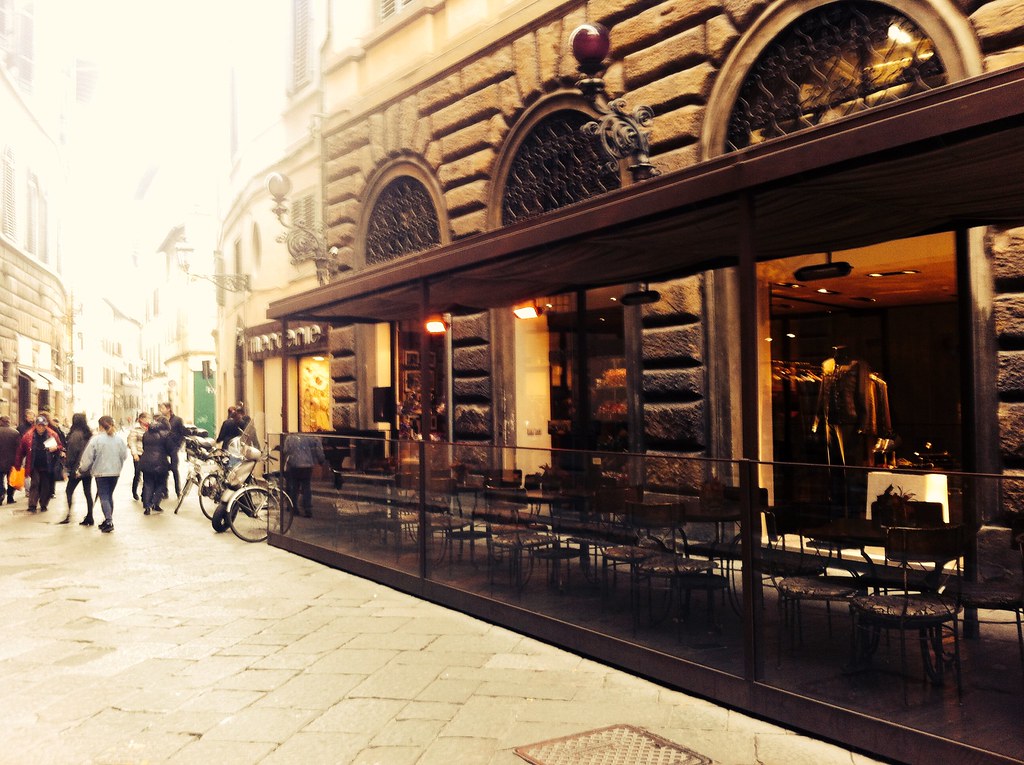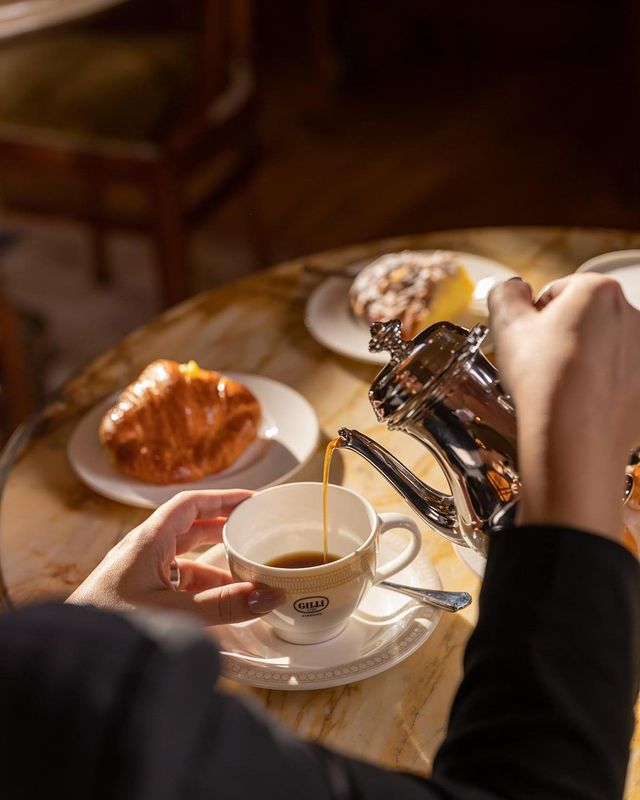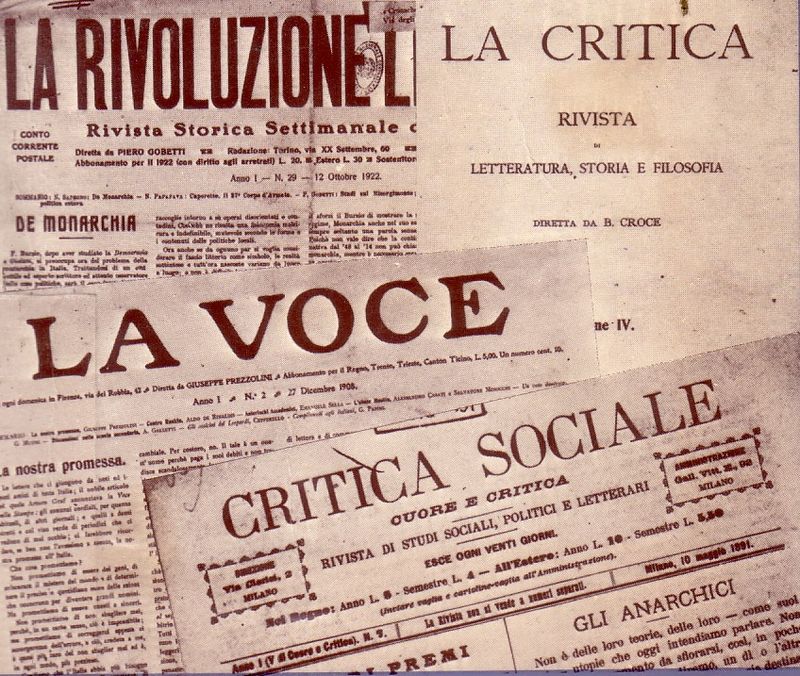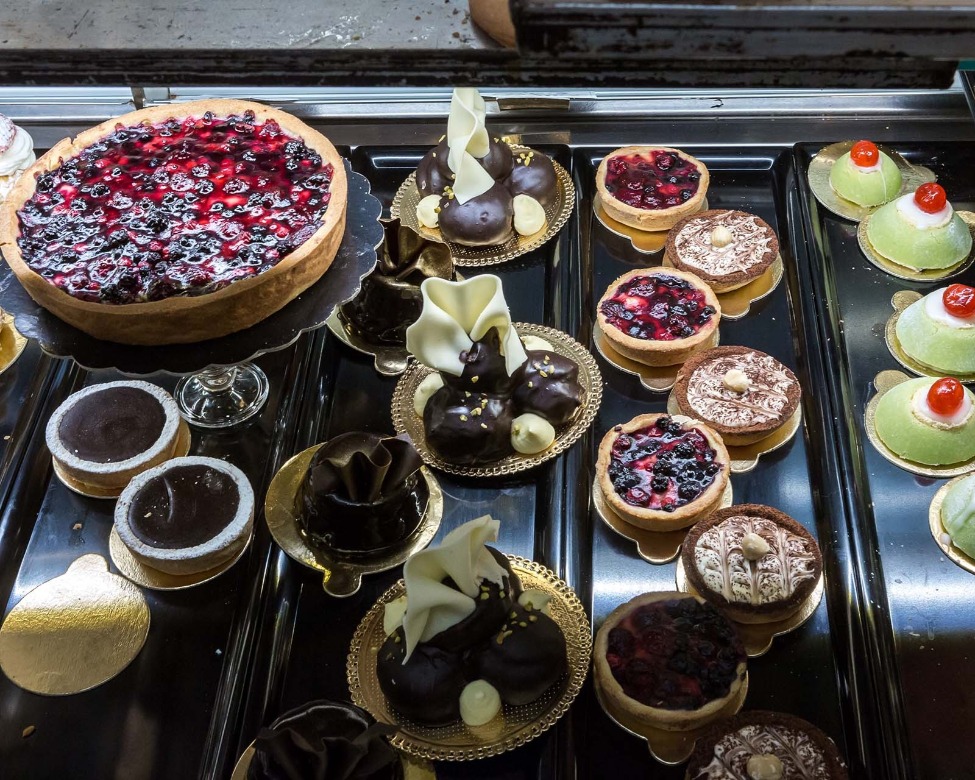
The dolce vita: Florence's literary cafes have made history
Bars and pasticcerie that reveal historical Florence with futurism and flavours.
Meeting places, cultural exchange and Italian coffee. Many bars and pastry shops in Florence are recognized as historical activities both for their longevity and for their role in the history of the 1900’s. These historic cafés, starting with three in Piazza della Repubblica.
Caffè Gilli
The very first of its kind, Caffè Gilli began in 1773 when the Swiss Gilli family opened La Bottega dei Pani Dolci in Florence. It quickly became famous among the Florentine nobles who came everyday, appreciating its fine confectionery. At the end of the nineteenth century, the shop found its definitive shape and location, becoming the austere but nouveau Caffè Gilli in Piazza della Repubblica. The place, like the other historic cafes overlooking the square, experienced a period of intense literary and intellectual fervour, due to the regular presence of futurists. The Gilli remains in the international imagination thanks to the iconic photo by Ruth Orkin entitled American girl in Italy 1951.

Paszkowski
A café, concerts and a brewery since 1903, this is the soul of the Paszkowski Café which takes its name from the Polish family that first opened a brewery in 1846. Famous for its elegance and refinement, it soon became a veritable artistic hub for literary exponents of the last century. It obtained the title of Caffè Letterario by hosting famous intellectuals such as Gabriele D’Annunzio, Eugenio Montale, Vasco Pratolini and Dino Campana. Paszkowski continues to be the epitome of a chic café in the centre of Florence, to be enjoyed accompanied by delicious treats.
Le Giubbe Rosse
Florentines of the late 1800s identified the bartenders of Le Giubbe Rosse as "Those of the red coats!" The fashionable spot was opened by the German Reininghaus brothers. With a surname that was considered too difficult to pronounce, the name was replaced with what it now the instantly recognizable Caffè delle Giubbe Rosse, one of the most cult literary historical cafés of the twentieth century. Avant-garde magazines such as Solaria (1926) about European culture emerged from this cafè as well as Letteratura (1937), filled with the ideas of a new generation of writers and Campo di Marte (1938), created by Gatto and Pratolini.

Caffè Giacosa
The historic Caffè Giacosa 1815 has also reopened! Famous for being a cult verse and meeting place of the dandies of the time, and especially for being the bar where the cocktail Negroni was born, now famous all over the world, in July 2023 the bar reopened in its original headquarters Via della Spada.
Rivoire
The legendary Rivoire café in Piazza della Signoria with its sublime artisan chocolate is a symbol of refinement. Overlooking the Palazzo Vecchio, this gem began its activity in 1872 and represents the intrinsic elegance of this city, as well as being a pasticceria that offers luxurious flavours.
Robiglio and Vivoli
Robiglio and Vivoli
Robiglio opened in Florence in 1928, rapidly acquiring an elegant and affectionate clientele. This unique café introduced much-appreciated Piedmontese techniques to Florence. Today, it is a modern confectionery where you can also enjoy traditional specialties like the Torta Campagnola, created by chance from a wrong dough, the Fruttodoro, or the famous Gallette al latte biscuits.
In 1929, Serafino Vivoli founded Vivoli that soon became a popular meeting place to have coffee and whipped cream on Sundays. In 1932 the Vivoli brothers decided to try their hand at producing ice cream and thanks to their passion and dedication, particularly in the 1960s and 1970s, the gelateria became a landmark for both Florentines and visitors to the city, even appearing in tourist guidebooks.







 All the services are provided by local merchants
All the services are provided by local merchants By using this site you support Florence
By using this site you support Florence We offer products with high-quality standards
We offer products with high-quality standards You stay sustainable
You stay sustainable It's a 100% trustworthy website
It's a 100% trustworthy website